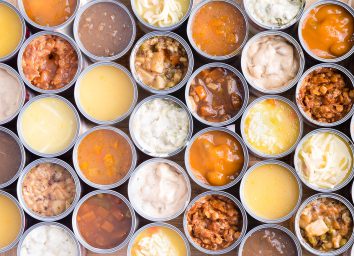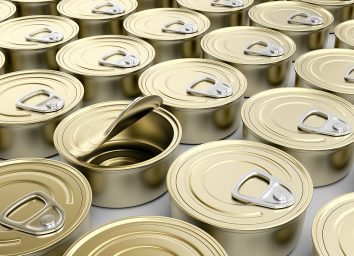Side Effects of Eating Canned Foods Every Day, According to Science
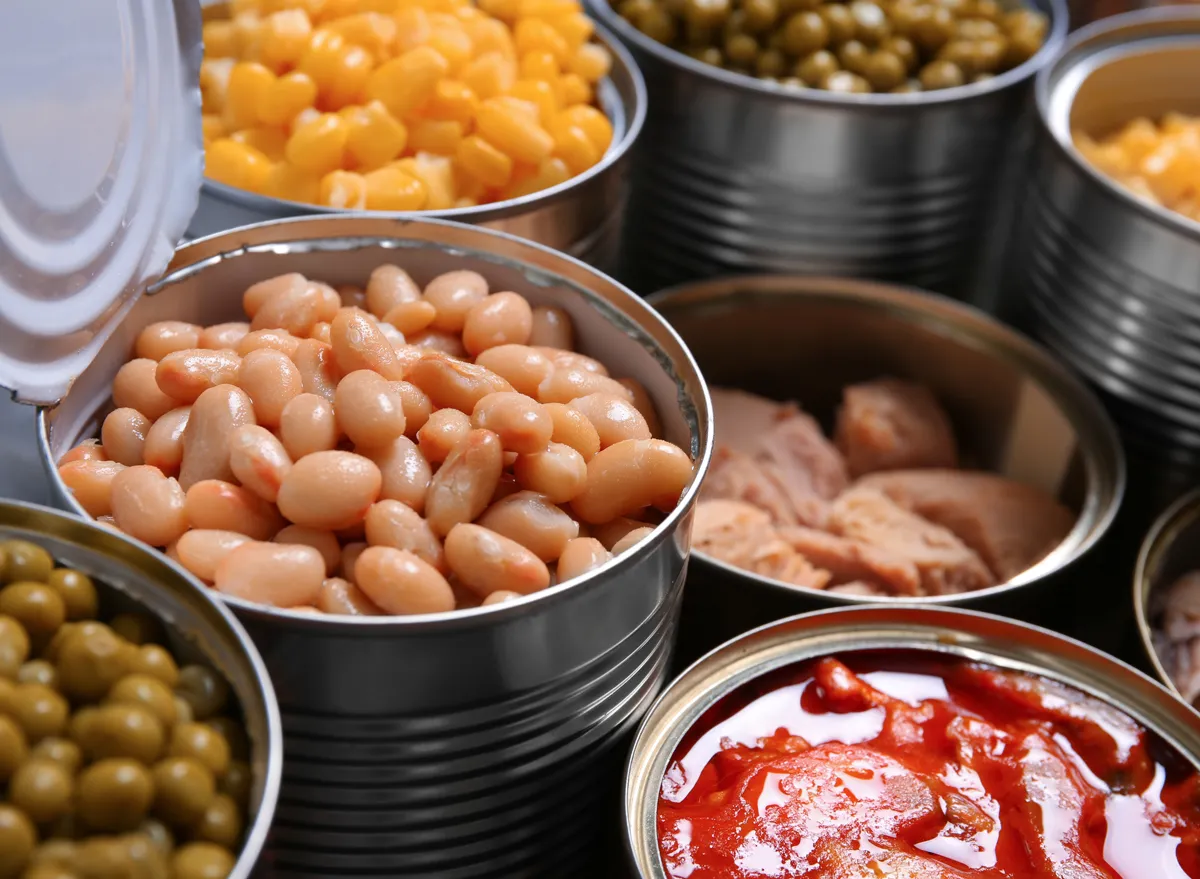
Canned foods — you either love them or you hate them. They often get a bad rap due to their history with BPA-lined tins or because they’re high in sodium (both true), but there are some redeeming qualities—both in terms of ease of cooking and health benefits—to this pantry staple.
Nutritionally speaking, many canned foods are minimally processed beyond the canning process and are generally healthy foods: tomatoes, beans, vegetables, and fish. Combine the healthfulness of these foods with their convenience and affordability, and you have a perfect addition to a healthy diet.
It’s mostly when you get to the overly processed canned foods that you can get in a lot of trouble. We’re talking canned soups, fruits, pastas, and the like.
To learn more about how these foods can affect your health—for the better and the worse—read on to see what science has to say about canned foods’ impact on your body. And for more on how to eat healthy, don’t miss 7 Healthiest Foods to Eat Right Now.
You may increase your risk of heart disease.

To assist with the preservation process, manufacturers add sodium to most canned foods. It’s also added to enhance the flavor. “When when commercial [canned] soups are cooked at a high temperature for a long enough time to kill potentially harmful bacteria, some of the natural flavors evaporate. Salt is a cheap, convenient way to make up for the loss,” say experts at the Center for Science in the Public Interest (CSPI). The problem with all this salt in canned goods is that salt raises blood pressure, which boosts the risk of heart attacks and strokes, as covered in a review published in the journal Nutrients. High blood pressure, also known as hypertension, affects nearly half of adults in the United States, according to the CDC, so it’s incredibly important to be mindful of your sodium intake.
Seek out “low-sodium” versions of beans, tomatoes, vegetables, and more the next time you’re shopping for canned goods. We also recommend these 14 Best Low-Sodium Canned Soups for Heart Health, Approved by Dietitians.
You may consume more nutrients.
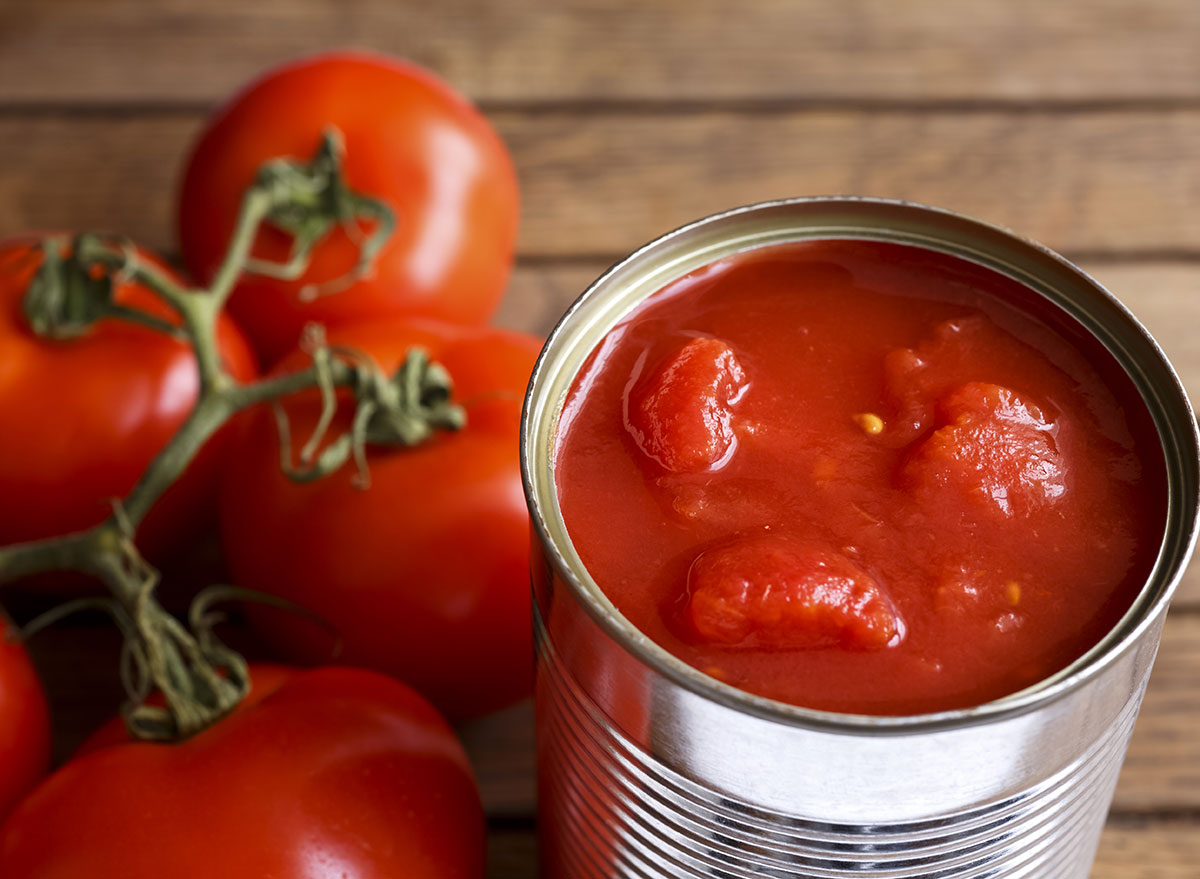
Studies have shown that not only are canned foods on par nutritionally with fresh and frozen foods, but some canned foods may actually contain higher amounts of essential nutrients. Michigan State University researchers found that canned tomatoes have more lycopene, an antioxidant notable for its anti-cancer properties, and more B vitamins than fresh tomatoes.
You may increase your fiber intake.
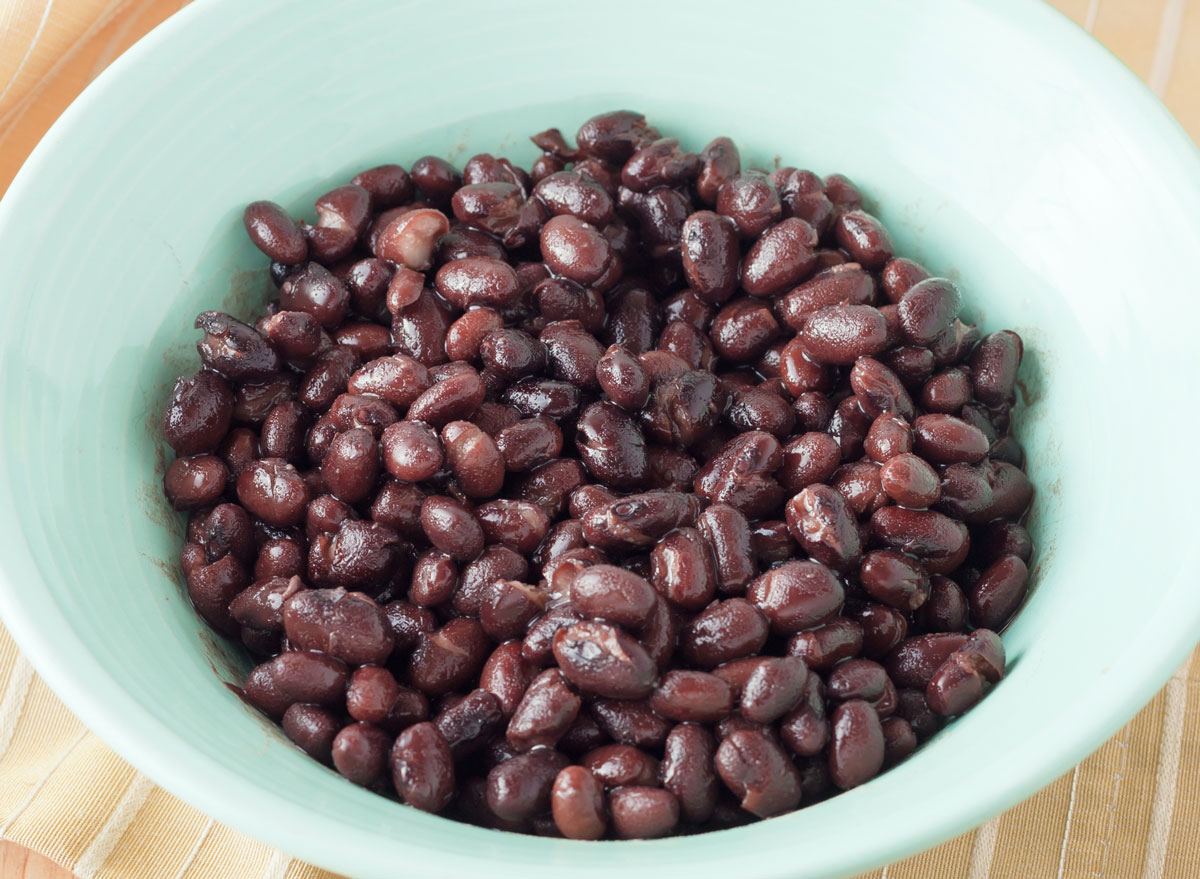
How often do you make beans from scratch? Not often? How about buying a can of beans? Your answer is probably “more frequently.” And that’s a good thing. Beans are among the best sources of fiber, a macronutrient that 95% of the American population isn’t getting enough of. Fiber is essential for digestive health, and studies have even linked increased intake to significant weight loss. Considering the fact that studies show that canning helps make fiber in certain vegetables, like beans, more soluble, and therefore more useful to the human body, canned beans can definitely make a positive impact on your health.
Make sure to buy low-sodium beans or simply rinse them before using them. Scientists have shown that rinsing canned foods like beans can help to decrease the sodium content by up to 41%.
You may be causing tissue damage.
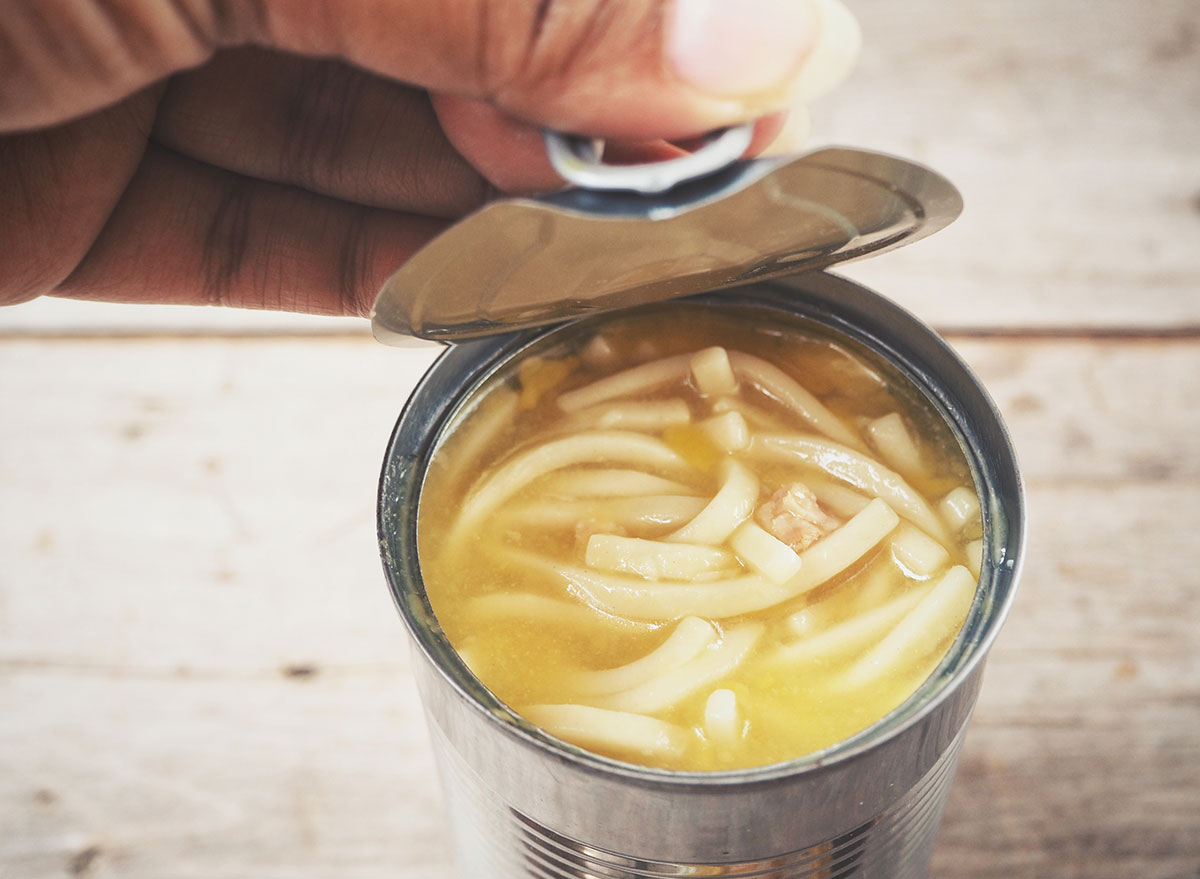
To further help with preservation and flavor enhancement, oftentimes manufacturers will add sodium phosphate to canned soups. The ingredient isn’t harmful in small quantities, but if you eat canned foods every day, you can suffer from some negative side effects. Phosphates are necessary for our diets, however, the inorganic phosphates used in canned foods have been found to disrupt hormone regulation, which can ultimately result in tissue damage, increase risk of cardiovascular disease, renal impairment, and bone loss, according to an Advances in Nutrition review.
You’ll likely reduce your risk of foodborne illnesses.
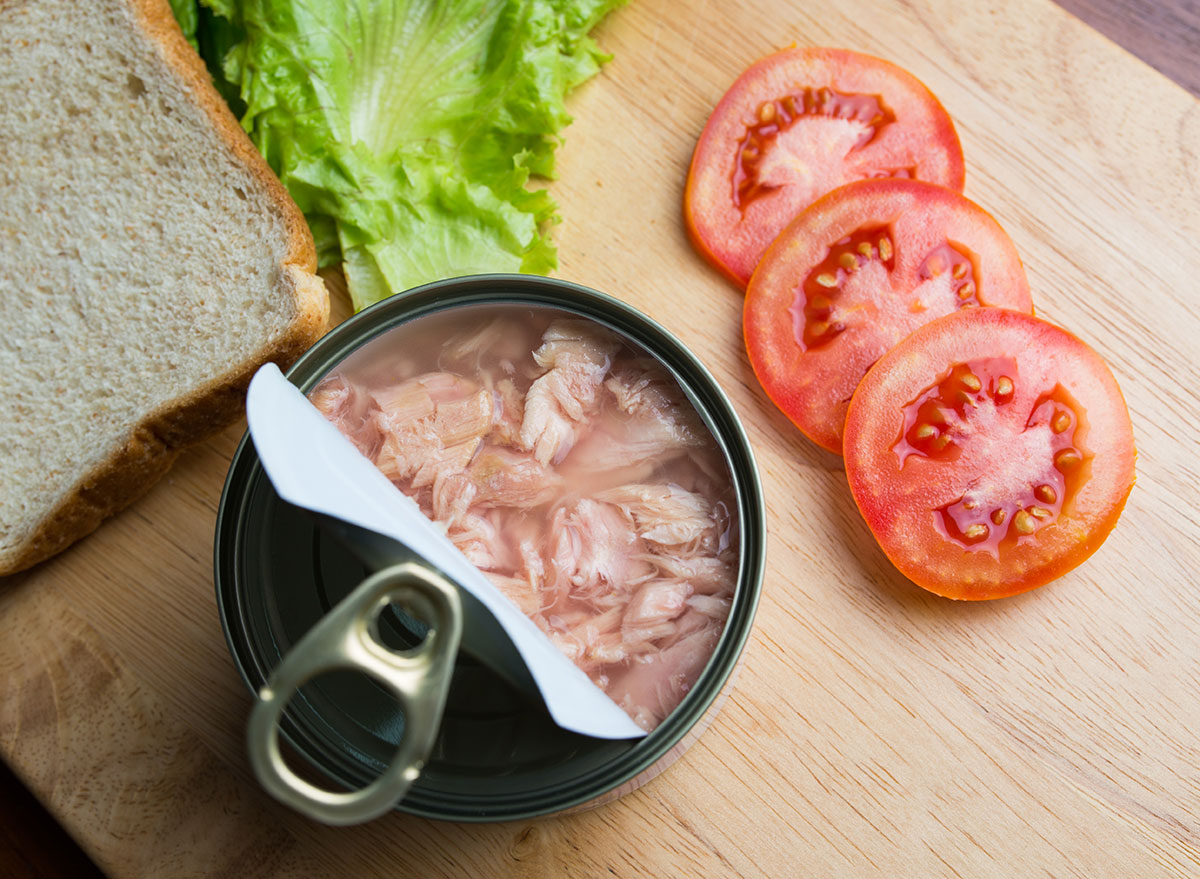
Canning has been used as a food preservation method for centuries—as far back as the 1790s. That’s because it’s a safe way to extend the life of foods so you can eat them during the time of year that they may not be available. The process is to seal the food in cans and then heat treat it.
The high-heat canning process is one of the safest processes for preserving food because it prevents the growth of microorganisms that cause foodborne illnesses. This is an important safety benefit considering that at least 128,000 Americans are hospitalized every year with foodborne illnesses, according to the CDC.
